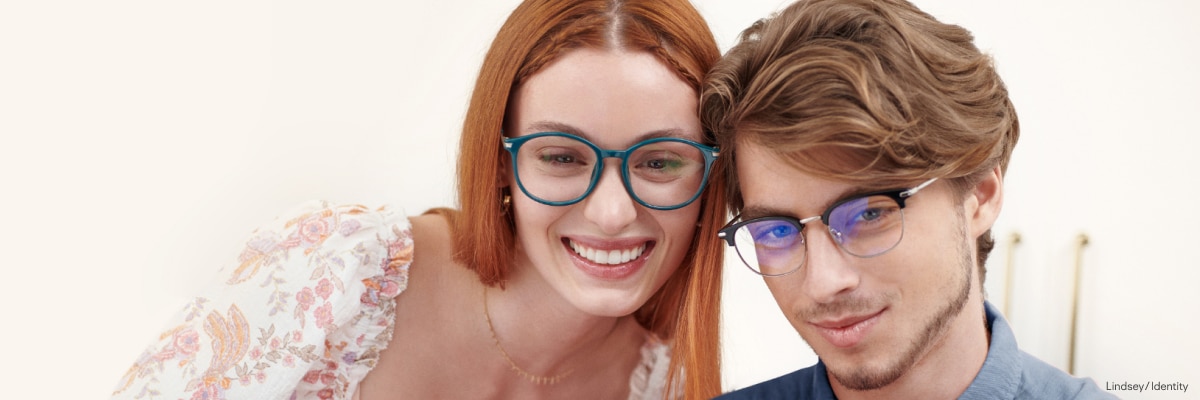In the EBD Blog
Prescription glasses frames are available in a wide variety of shapes and sizes and the lenses in prescription glasses are no different. There are a wide array of materials, tints, and coatings to choose from.
One coating often asked about is the blue light kind. blue light coating is intended to help reduce visual discomfort, fatigue, and headaches. So, do prescription glasses filter blue-violet light? The answer’s yes, if you get the coating!
Do Regular Prescription Glasses Filter blue-violet light?
Regular prescription glasses can mean many things. At the bare minimum we may be talking about plastic, uncoated lenses or at the other end of the spectrum, a pair of high-index, premium coated lenses. So, again, regular prescription glasses will filter blue-violet light as long as you get the coating! If you don’t opt for the coating, your lenses will let most of the blue-violet light pass through.It should be understood that blue-violet light coating and UV coating are not the same. UV coating helps prevent damaging ultraviolet radiation from reaching your eyes. That kind of coating doesn’t filter blue-violet light so make sure you’re getting what you ask for. Honestly, it’s a great idea to have both!
Do Non-Prescription Glasses Filter blue-violet light?
The answer to this question is similar to the above. However, if you’re simply buying some costume, non-ophthalmic frames, then no, your non-prescription lenses in this case won’t filter blue-violet light. However, on ophthalmic frames with non-prescription ophthalmic lenses, you can indeed get the blue light coating. Some studies have shown that, even for people who don’t ‘need’ a prescription, they’ve found they have less fatigue while wearing blue light filtering lenses. If you’re like most of the world and staring at a screen for hours a day, it might be worth a try to see if these lenses help.
Can You Get Blue Light Filtering Lenses on Prescription Glasses?
Yep, sure! As mentioned, you can get blue-violet light protection on any ophthalmic lens regardless of whether it’s prescription or not. You can have this coating in addition to any other coatings you might want — such as: anti-glare, scratch resistance, and UV. In fact, it’s a good idea to get all of these coatings! You’re also able to put blue light coating on prescription reading glasses, bifocals, and progressive no-line bifocals.
To sum up, while some studies vary on the effectiveness of blue light glasses, if you’re struggling with fatigue and headaches after a long day of using screens, you can try the blue light coating on a pair of glasses — prescription and non-prescription — to see if they help. And as with any of these suggestions, you won’t know unless you try!


